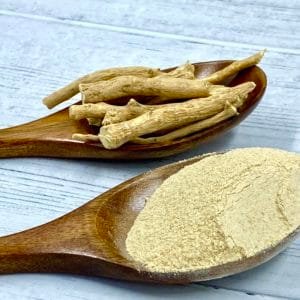In the past decade, pre-workout booster supplements have gained more and more traction in the fitness world, becoming one of the most potent pump products.
Though some pre-workout formulations help you recover in-between sets and after a workout, the most potent and sought-after effect of those products is the increased strength, pump, endurance and focus.
In this article, we’re going to give you our take on pre-workout supplements and whether or not they are worth using.
What Are Pre-Workout Supplements?
Pre-workout supplements, also known as “nitric oxide boosters” are products, formulated for the specific purpose of increasing nitric oxide production.
Nitric oxide is essentially a naturally produced compound in the body that serves a variety of functions, such as regulating blood pressure and relaxing smooth muscle tissues.
Generally, most pre-workout formulations contain a flurry of potent stimulants that increase pump, focus, strength and endurance.
What Do Pre-Workouts Contain?
For the most part, many of the famous pre-workout boosters have a similar ingredient content so let’s have a look at the most common contents of a nitric oxide booster and what they provide.
#1 Caffeine
Because caffeine is the single most potent, proven to work as an energy booster, it is used in the formulation of all stimulant-based pre-workout supplements.
A stimulant-based product without caffeine is kind of like a salad without, well, the salad.
Caffeine is proven to improve energy levels, exercise performance, mental alertness, memory and focus.
For this reason, most pre-workout formulas contain anywhere from 150 to 350 mg of caffeine in each dose.
Without a doubt, this is one of the ingredients that provide the bigger portion of the boost you feel from a pre-workout supplement.
#2 Creatine
If you know a thing or two about the body, you probably know that creatine isn’t just a supplement.
As a matter of fact, creatine is the body’s secondary energy resource, used during high-intensity training, such as resistance training.
As a compound, creatine is stored in skeletal muscle and plays a big role in your performance.
For this reason, besides being offered as a standalone product, it is included in many pre-workout formulations.
Though creatine is not a stimulant, it is a viable part of any pre-workout formulation, due to its proven benefits for intense performance.
#3 Nitric Oxide Boosters
As we mentioned, nitric oxide is a naturally-produced compound in the body that has a variety of functions, one of which is the improvement of the blood flow.
Some of the compounds that the body uses to make nitric oxide are the following:
- L-Arginine
- L-Citrulline Malate
Because these two compounds have main roles in the production of nitric oxide, you will more than likely see them in most pre-workout formulations.
Do Boosters Have Side Effects, Though?
Though it seems like pre-workout supplements can only take your performance to the moon, there are a couple of possible side effects, which you should consider before buying a product.
#1 Energy Crash
Some of the most famous pre-workout boosters can easily lead to an energy crash, following the energy spike during the workout.
This is mainly induced because of the sudden energy spike you get from all the stimulants.
For this reason, it is possible that you will experience a significant decrease in physical and mental energy after the workout.
#2 Too Much Caffeine
As we mentioned, one of the core ingredients of all stimulant-based products is caffeine.
Because pre-workout supplements contain 3-4 cups of coffee worth of caffeine, this can easily lead to unwanted side effects, such as:
- Increased blood pressure
- Anxiety
- Restlessness
- Disrupted sleep patterns
The important considerations here, are to determine your caffeine tolerance and take into account any other caffeinated drinks that you’re having throughout the day.
#3 Supplement Origin
Because most supplements are not tightly regulated, you may stumble upon a product that has banned, strong substances that may be dangerous for you in the long run.
For this reason, your best bet is to rely on already well-established supplement brands, that offer supplements approved by a third party.
Always research your pre-workouts (and your own stimulant tolerance) before starting to use them!
Conclusion
Stim-based pre-workout supplements can do wonders when it comes to optimizing performance.
Nevertheless, to avoid any side effects, you have to make sure that you do the following:
- Do your research, purchase a legit, approved product
- Test your tolerance – How much caffeine can you intake without getting jittery?
- Take your pre-workout 30 minutes before a workout in order for it to kick in on time
- Avoid taking your pre-workout less than 6 hours before sleep (caffeine stays in your blood for quite some time)
- Avoid supplementing with this DAILY – Use it only on your toughest workouts or days when you don’t have much energy and need a boost.
- If you can’t handle stimulants, shoot for a stim-free pre-workout
- ONLY take stim-based pre-workouts if you don’t have past/present cardiovascular issues
Ultimately, if you follow these guidelines, you will be able to find a good product that will increase your output, without putting you at risk of any possible side effects.
Do YOU have a favorite pre-workout supplement? Tell us which one it is in the comments below!






